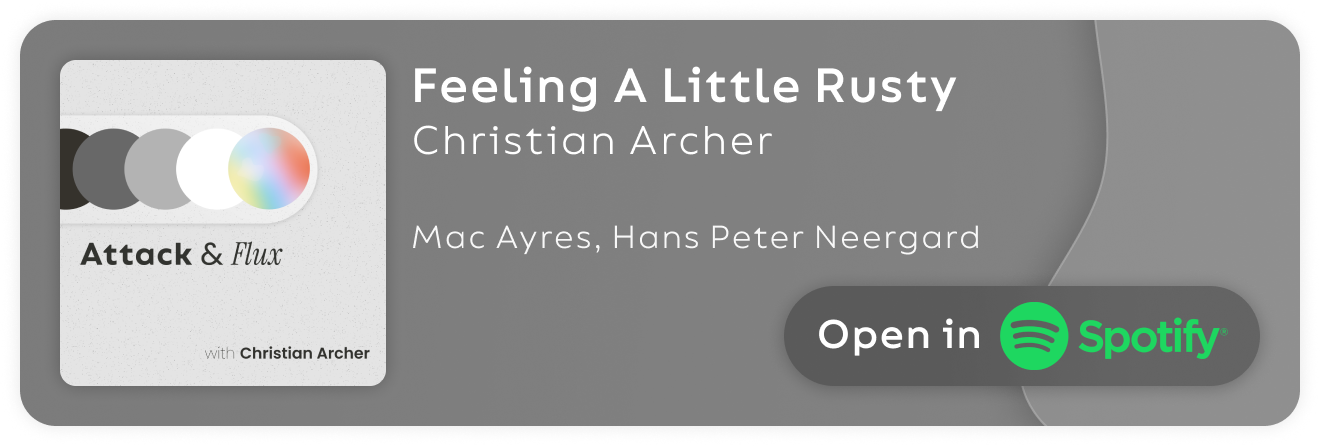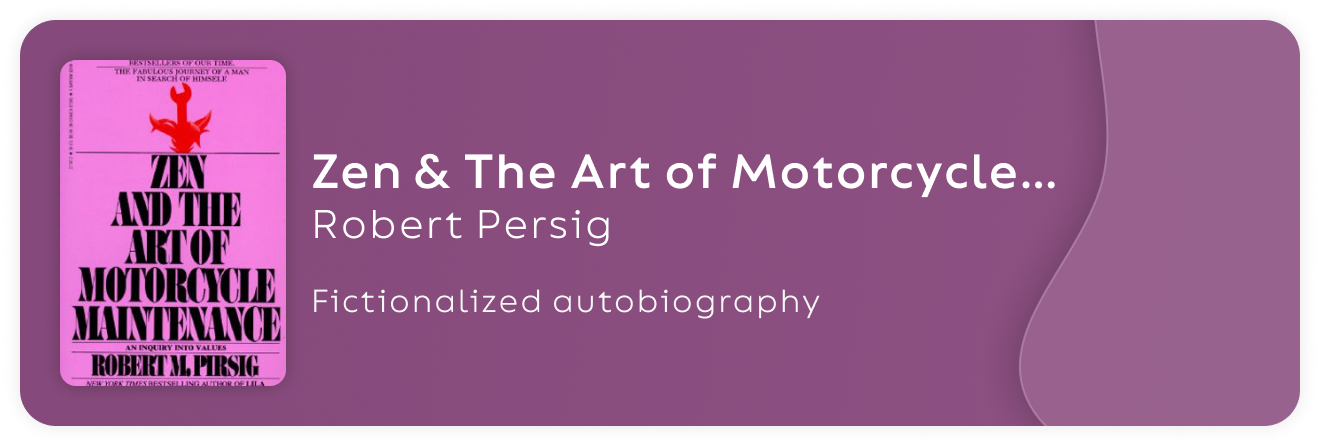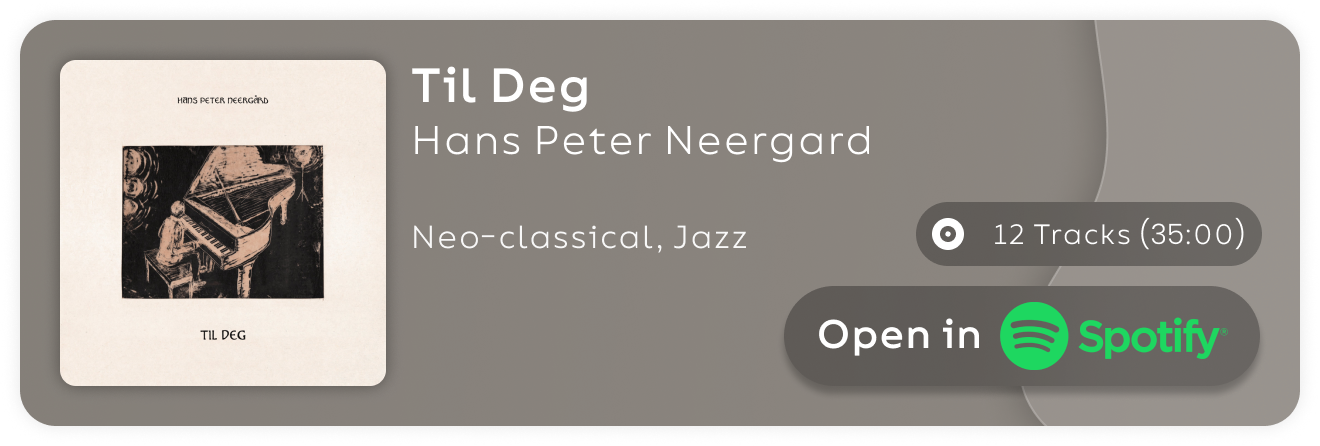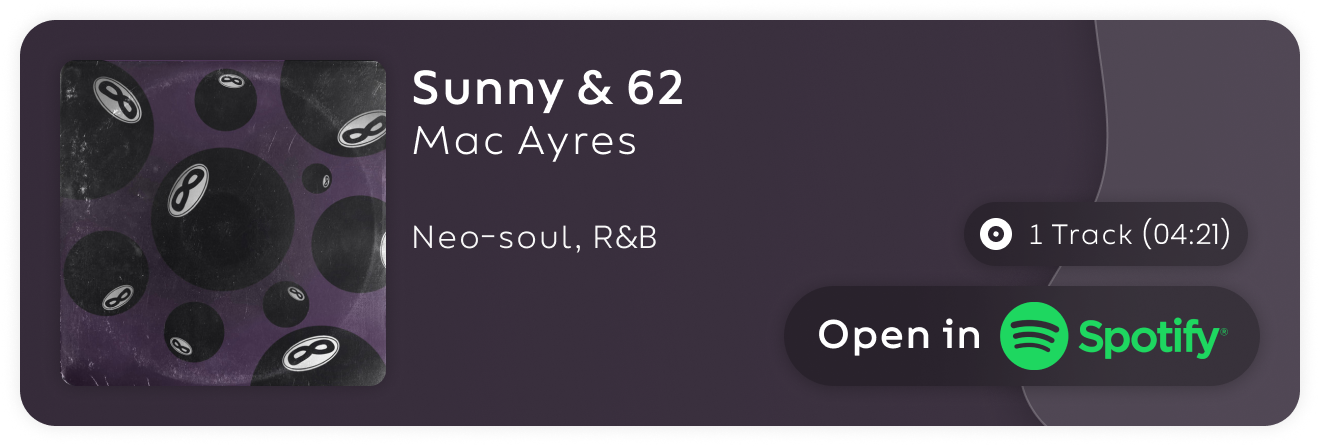I'm Feeling Rusty.

Want the best experience? Stream this newsletter instead.

That thing happened again, that thing where I get really excited about an initiative or activity only to rapidly fall out of a relationship with it shortly thereafter. I guess it's not so bad considering here I am, pressing ink upon paper with decisive strikes of the hammer. I read recently that when you have finally stuck a good habit, that it feels as if it has arrived fully formed overnight. This leads one to believe that good habits are formed solely off of the back of momentum and other worldly self discipline, thus explaining a society obsessed with new year's resolutions and life coaches. We are wrongly led to believe that if we want to stick our exercise routine then we need to immediately show up to the gym with the resolute dedication to be there 5 times a week without fail, bring your best and most expensive set of athleisure wear and goddamnit, you better know exactly what you're doing. Sound familiar? The problem is though, life happens. Maybe the next week ends up being the rainiest, mellowest week that you will experience in your lifetime, maybe that makes it a bit harder to muster up the motivation to leave the comfort of your own home to continue pushing through this new habit of yours. Perhaps, you want to stay in the watch the sheets of rain descend upon the landscape. The point is, maybe instead of meeting your wildly out of touch expectations that week, you miss them, but worse than that, you dismantle yourself for such a transgression.
What happens next is that we traditionally abandon the pursuit entirely, prescribing our next attempt to some far-off holiday or event.
Oh well, I'll try again next year.
The thing is though, the universe doesn't care about your understanding of consistency and what good discipline looks like, it doesn't care if you do the thing once a week or 100 times a week, it only cares that the deed is done repeatedly, period, thats on a scale relative to a human life. The writer that holds himself to unrealistic expectations for the practice of his craft is less likely to stick the habit than a casual writer who sits down once a week to write for fun. So you see, this overnight sensation thing is, actually, a result of a accumulation over time. A writer who starts with the very achievable goal of writing for 10 minutes, once a week, will very likely start writing twice a week, then thrice and so forth. Curiosity and grace are the drivers for good habits, no self flagellation. As years go by, the curious, once a week writer will look back and discover a body of work, he may then say - "My god, I'm a writer!" - while on the other hand, the writer who believed the only way to write is to sit down 5 days a week or bust will be, still be, looking forward to tomorrow where he will try to, once again, become superman, or Truman Capote.
That was a very long-winded way of saying - I may not have written as much as I have liked to recently, but I still have two fat manilla folders of work to show for myself, so why not add to it. I'll end with 3 gratefuls.
3 Gratefuls:
- Iteration, it is the foundation of success both personal and professional
- Dogs, they're way better than cats, and it's not even close. If you disagree, you've never raised a dog.
- Putting myself out there, stick that hand out, you never know who will reach out to touch it.
Encore
I won't spend too much time on this because I know we're probably all dying to get to the music and the quotes to consider, but I wanted to share something that imparted upon me quite profoundly a couple of years ago, and which I've really built all of my best habits off the back of, and that is the concept of MVE or minimum viable effort.
The idea is pretty simple. If there is something you want to do, whether it's to stick a workout routine, pick up the habit of reading, or anything - what is the smallest amount of action you can take towards doing that thing daily? So, a good way of thinking of it is like this:
In the mornings, Liza and I start our days with a very small and short movement exercise, which we got from a great writer named Sahil Bloom. He basically says, if you want to have a day that you're more in control of, and you want to set the grounds for a healthy and active lifestyle, start your day with light physical challenge.
The first thing you do is 10 push ups, and if you can't do 10, do 1 until you can get to 10, and as soon as you do 10, do 10 squats. When you do 10 squats, do a 30 second plank, and you're done. This entire thing takes 2 minutes, but it starts your day off on a great note, and gets your body more in the habit of movement and challenge.
So, look at your life and find something you want to get better at. And then identify the smallest amount of work you can put towards that thing and then just start doing it. For writing, I will share a similar example. I woke up and said to myself:
"By the end of this day, I need to have written something, anything at all for no more than 10 minutes".
It doesn't have to be with my hand, it can be on my computer or whatever I feel is easiest. It doesn't have to have a point, It just needs to be done over the course of 10 minutes. If 10 minutes sounds too daunting, then drop it to five minutes. If five minutes sounds too daunting, drop it to one minute. If you want to become a better writer, write one minute a day and see how your habits start to form and how your mind starts to change.
That's it. Let's keep going.
🎧 A Quote To Consider

Zen & The Art of Motorcycle is a Fictionalized auto-biography of a man and his son's journey across America's rugged interior landscape on the back of his motorcycle. More importantly it's about the lessons and revelations stumbled upon while riding day after day through challenging conditions and encounters with the expected, and unexpected.
I should talk now about Phaedrus' knife. It'll help understand some of the things we talked about. The application of this knife, the division of the world into parts and the building of the structure is something everybody does. All the time we are aware of millions of things around us.
These changing shapes, these burning hills, the sound of the engine, the feel of the throttle, each rock and weed and fence post and piece of debris beside the road - aware of these things but not really conscious of them unless there is something unusual or unless they reflect something we are predisposed to see.
We could not possibly be conscious of these things and remember all of them because our mind would be so full of useless details we would be unable to think. From all this awareness, we must select. And what we select and call consciousness is never the same as the awareness because the process of selection mutates it.
We take a handful of sand from the endless landscape of awareness around us and call that handful of sand the world. I'm going to repeat that last part before finishing. Once we have the handful of sand, the world of which we are conscious, a process of discrimination goes to work on it. This is the knife we divide the sand into parts, this and that here and there black and white now and then the discrimination is the division of the conscious universe into parts.
So that was a lot. The earlier parts of the quote seems to be addressing the awareness of things, all the millions of things that enter our periphery and pass by us and whiz by like shooting stars.
We take account of these all, but we can't possibly take them all into our consciousness because we would be completely overloaded. And so our entire extended experience is this vast awareness, it's the beach you walk on. As Lil Wayne said:
Life is a beach and we're just playing in the sands.
somehow, that's very relevant to this conversation. From this beach, our consciousness is merely the handful that makes the most sense to us.
And what I find that makes life hard, particularly in conflict or in communication with people, and particularly with people that we don't necessarily agree with, or people that are causing us strife is: we look down at this handful of sand and we defend it with everything we've got not realizing that this handful of sand is a distortion. It's personal and it's meaningful to you, but it is still very much a distortion of the world around us. So something I urge you to do is to try to identify what your handful of sand looks like. What parts are in it?
What is it made up of? What color is it? What shape is it? What's the texture? Is it black sand? Is it pebbles and or is it fine grain? Try to love it. Try to recognize it. Try to see it. Try to honor it. But when you find that life is giving you challenge and you cannot communicate yourself and the impasse seems insurmountable, do me a favor and just put your handful of sand back on the beach.
Try to return it from where it came from. Try to return to that more general awareness and realize that when we are having problems with people, it is because we are also violently defending our little handful of sand, which at the end of the day is really not much.
Maybe practice letting it slip through your fingers and reaching down and grabbing a new one. Maybe you grab more, maybe you grab less, but let it be somewhat new every time. That's all.
🏡 An Album to Live In

🎧 A Song to Study

👋 Until next time...
I understand how sacred privacy is in our day and I feel tremendously honored when someone trusts me enough to let me into their inbox week after week. Thanks for being here ❤️.